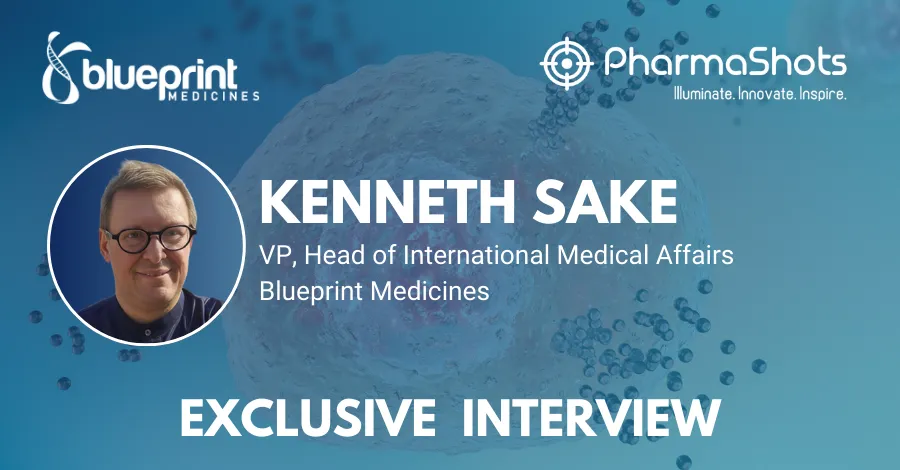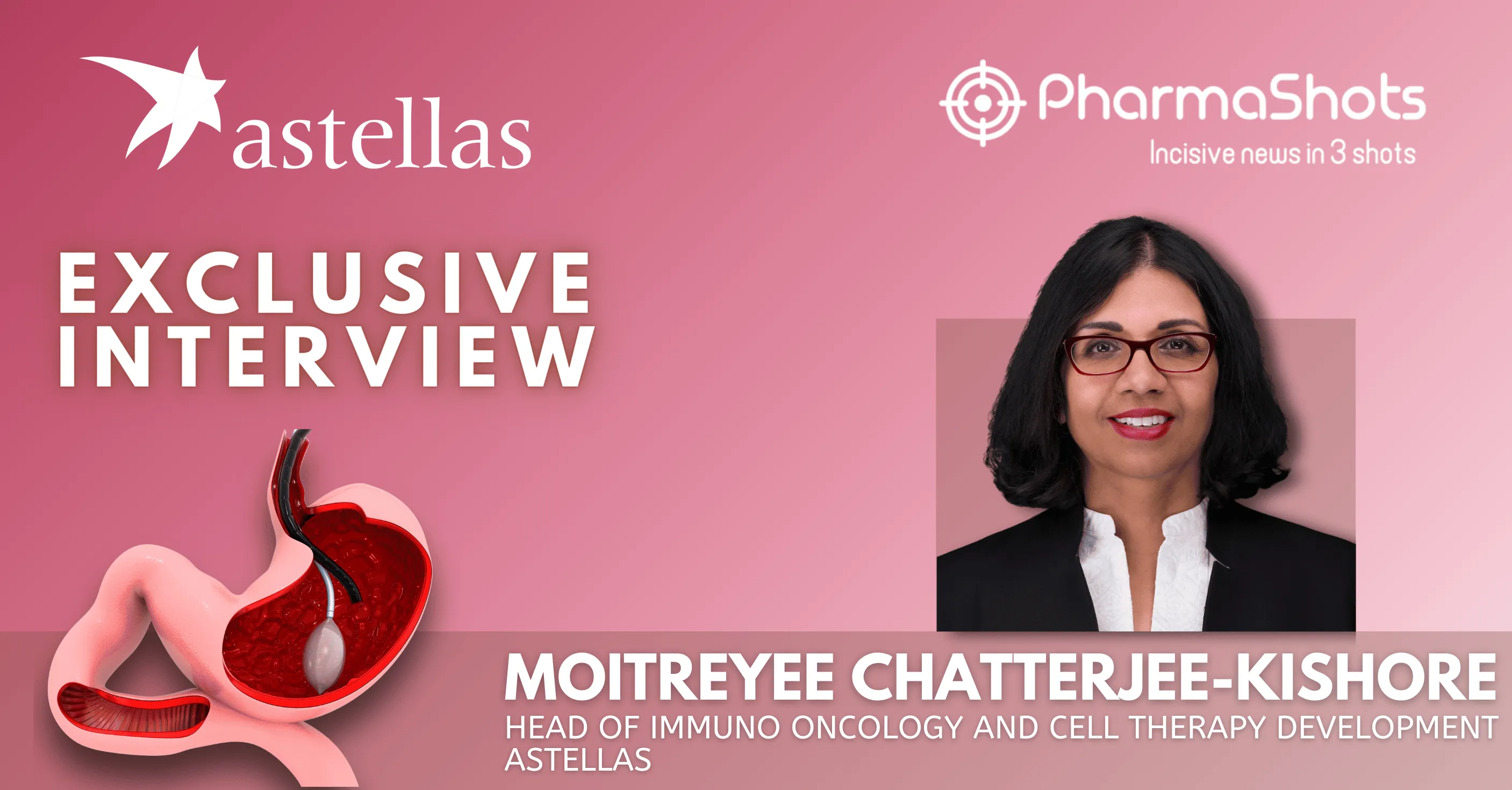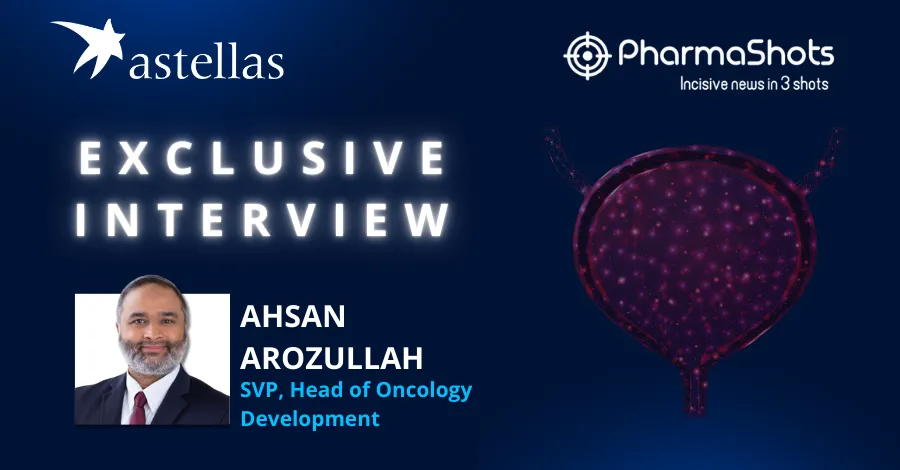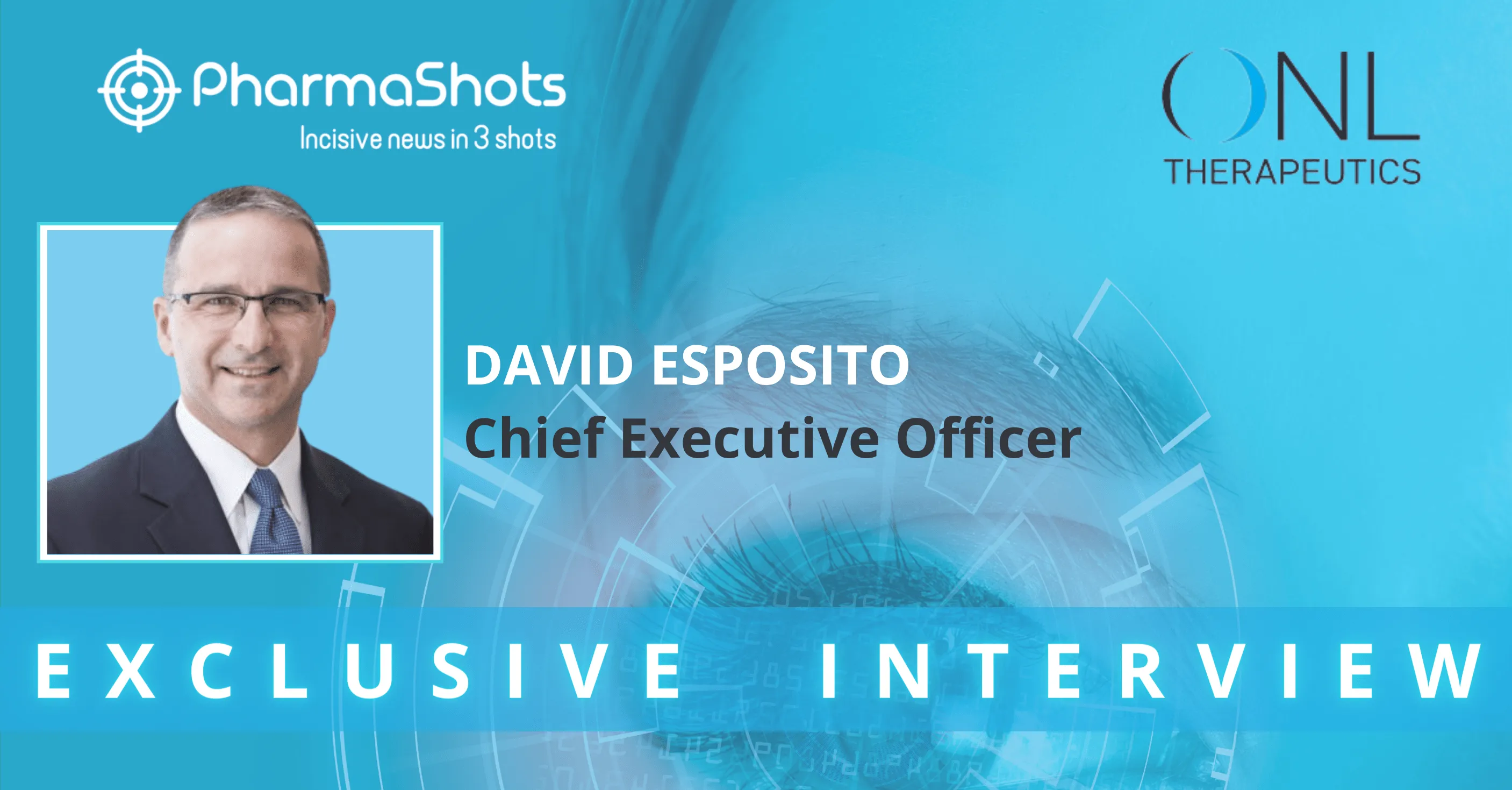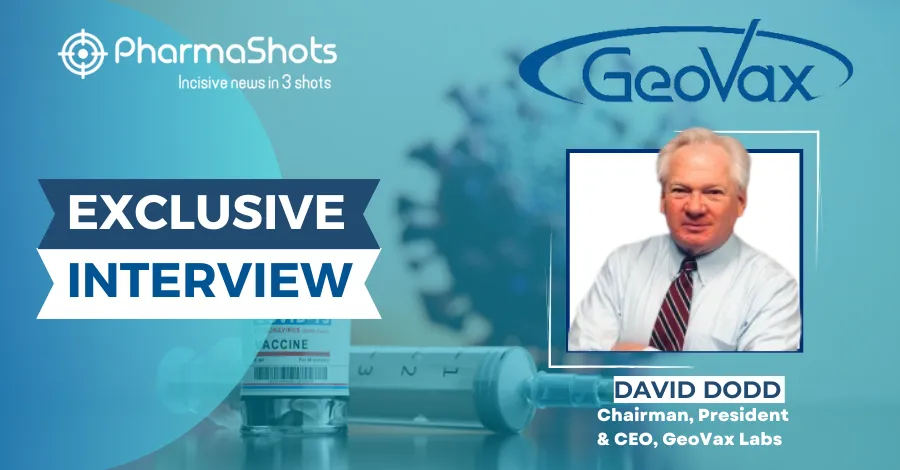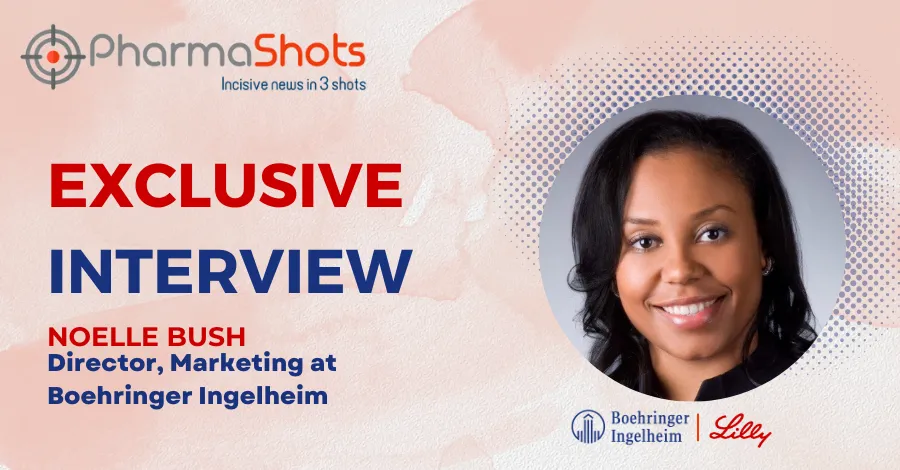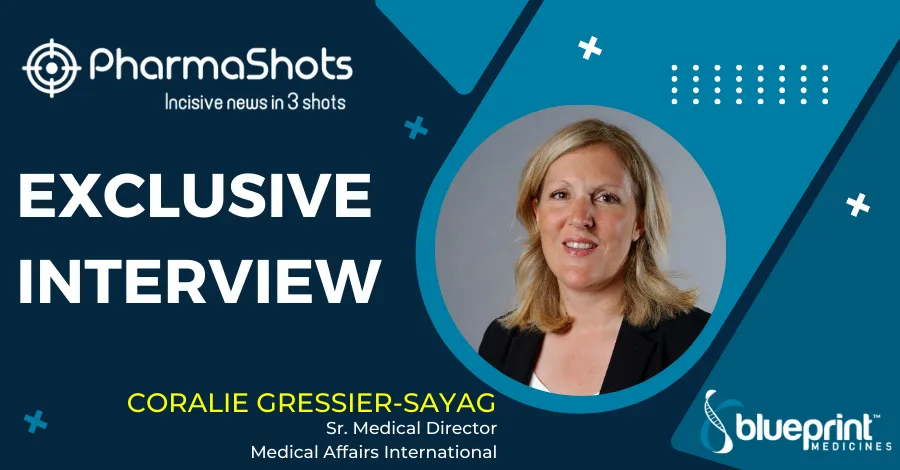
Exclusive Interview with PharmaShots: Dr. Briggs W. Morrison of Syndax Share Insight on the Syndax' Agreement with Incyte for Axatilimab
In an interview with PharmaShots, Dr. Briggs W. Morrison, MD, Chief Executive Officer and Director at Syndax share his views on the license agreement for axatilimab with Incyte to treat cGVHD and other fibrotic diseases
Shots:
- The companies collaborated to develop and commercialize Syndax's axatilimab (anti-CSF-1R mAb) & will get a 50:50 US profit share
- Incyte will lead the global commercial activities of axatilimab across all indications & Syndax holds an option to co-promote in the US. The companies will share development costs at 55% (Incyte) & 45% (Syndax)
- The P-II AGAVE-201 trial results are expected in 2023 & both companies plan to expand the development of axatilimab in cGVHD with additional monothx. & combination trials in 2022
Tuba: Discuss about the terms and conditions of Syndax's exclusive collaboration with Incyte.
Briggs: Syndax and Incyte are seeking to develop axatilimab as a backbone therapy for patients with cGVHD as well as in additional indications where CSF-1R-dependent monocytes and macrophages are believed to contribute to organ fibrosis.
Under the terms of the agreement, Incyte will lead global commercial activities for axatilimab across all indications. The companies will participate in a 50:50 profit share in the U.S., and Syndax will receive double-digit royalties on sales outside of the U.S. Syndax will retain the option to co-promote axatilimab for any approved indications in the U.S. In connection with the agreement, Syndax will receive an upfront payment of $117 million-plus a $35 million equity investment, which will be purchased at $24.62 per share, a 30% premium to the volume-weighted average price over the 10 days before September 24, 2021. Syndax will also be eligible to receive up to an additional $450 million in potential regulatory, development, and commercial milestone payments.
The companies will share development costs associated with global and U.S.-specific trials for all agreed-upon trials at a rate of 55% (Incyte) and 45% (Syndax), with Incyte responsible for 100% of future development costs for trials that are specific to ex-U.S. countries. Syndax will fund the initial development of axatilimab in IPF and Incyte will have the option to co-fund late-stage development for this indication.
Tuba: Highlights the key features of Axatilimab (its MOA, ROA, etc.)
Briggs: Axatilimab is an investigational monoclonal antibody that targets colony-stimulating factor-1 receptor or CSF-1R, a cell surface protein thought to control the survival and function of monocytes and macrophages. In pre-clinical models, inhibition of signaling through the CSF-1 receptor has been shown to reduce the number of disease-mediating macrophages along with their monocyte precursors, which has been shown to play a key role in the fibrotic disease process underlying diseases, such as chronic graft-versus-host disease and idiopathic pulmonary fibrosis.
Tuba: Discuss the study design and the data of the P-I/II trial (AGAVE-201).
Briggs: AGAVE-201 is a Phase 2, open-label, randomized, multicenter study to evaluate the efficacy, safety, and tolerability of axatilimab at 3 different dose levels in patients with recurrent or refractory active cGVHD who have received at least 2 prior lines of systemic therapy due to progression of the disease, intolerability or toxicity. Disease progression is defined 1) by the NIH 2014 consensus criteria, either in terms of an organ-specific algorithm or global assessment, or 2) as active, symptomatic cGVHD for whom the physician believes that a new line of systemic therapy is required.
Enrollment continues in the ongoing global pivotal Phase 2 AGAVE-201 trial of axatilimab monotherapy in patients with cGVHD, with topline data expected in 2023.
Tuba: What are Syndax's upcoming plans for Axatilimab to treat other indications?
Briggs: In addition to the AGAVE-201 trial, Syndax and Incyte have plans to expand the development of Axatilimab within cGVHD and beyond. Our initial steps toward this effort include expansion to earlier lines of cGVHD with the initiation of a Phase 2 trial in combination with a JAK inhibitor in patients with steroid-refractory cGVHD. And beyond cGVHD, to commence a Phase 2 proof of concept trial of axatilimab in patients with IPF, a serious, life-limiting orphan disease for which axatilimab could represent a much-needed treatment option with a novel mechanism of action. Both these trials are expected to commence in 2022 with the exploration of additional opportunities following over time.
Tuba: Can we have a discussion on chronic Graft vs. Host Disease (cGVHD)?
Briggs: cGVHD, an immune response of the donor-derived hematopoietic cells against recipient tissues, is a serious, potentially life-threatening complication of allogeneic hematopoietic stem cell transplantation which can last for years. cGVHD is estimated to develop in approximately 40% of transplant recipients and affects approximately 14,000 patients in the U.S.
cGVHD typically manifests across multiple organ systems, with skin and mucosa being commonly involved, and is characterized by the development of fibrotic tissue. As a result of cGVHD, patients may experience symptoms including shortness of breath, muscle weakness, and cramps, painful mouth ulcers, rash and hair loss, as well as other potential symptoms in the mouth, lungs, liver, muscles and joints, genitalia, and GI tract, as well as on the skin and nails. Patients with more severe symptoms or multi-organ involvement typically require systemic treatment.
Tuba: Do you think Axatilimab will serve as a backbone therapy for patients with cGVHD and other immune-mediated diseases?
Briggs: In clinical trials, Axatilimab has demonstrated deep, durable responses and multiorgan clinical benefit in patients with cGVHD refractory to multiple therapeutic agents. Based on this data, Axatilimab was granted Orphan Drug Designation by the U.S. Food and Drug Administration for the treatment of patients with cGVHD and is currently being evaluated in the global pivotal Phase 2 AGAVE-201 trial in patients with cGVHD.
Through its ability to inhibit monocyte-derived macrophages, which play a key role in the fibrotic disease process, we believe axatilimab could represent a meaningful therapeutic approach for cGVHD, as well as other fibrotic diseases.
Tuba: Put some light on your pipeline and the other indications, Syndax is currently working on.
Briggs: In addition to axatilimab, our pipeline includes SNDX-5613, a highly selective inhibitor of the MeninMLL binding interaction, and entinostat, a class I HDAC inhibitor. SNDX-5613 is currently being evaluated in the Company's AUGMENT-101 Phase 1/2 open-label clinical trial for the treatment of a subset of relapsed/refractory acute leukemias. Phase 1 topline data was presented in April 2021 which showcased its strong single-agent activity in patients with mixed lineage leukemia rearranged (MLLr) or nucleophosmin mutation (mNPM1). In June 2021, we announced that the FDA has granted Fast Track Designation to SNDX-5613 for the treatment of adult and pediatric patients with either mutation.
Tuba: Are you open to more collaborations and agreements for the development of Axatilimab?
Briggs: We are thrilled to be working alongside the talented and determined Incyte team to combine our expertise as we strive to provide new treatment options for patients in desperate need of effective interventions. Incyte is a proven leader in the development and commercialization of many important innovative therapies, including treatment for GVHD, and the collaboration we have established is a global partnership for all indications. Depending on where we choose to develop axatilimab beyond cGVHD and IPF, we may of course pursue clinical collaborations, but we are excited to work with Incyte a leader in cGHVD, with a commercial footprint that can support and enable a global launch across multiple indications.
Tuba: What next, we can expect from the Syndax in terms of clinical trials, collaborations, some HCPs programs?
Briggs: At Syndax, we believe that it takes a community to build a great medicine, and that is why we are working to set the new standard for developing medicines in the field of oncology one that revolves around collaboration, shared learning, and excellence. We remain committed to our mission to realize a future in which people with cancer live longer and better than ever before.
Our Phase 1/2 AUGMENT-101 and Phase 2 AGAVE-201 clinical trials are currently recruiting patients, and we look forward to bringing our medicines to new patients with relapsed or refractory MLLr or mNPM1 acute leukemias and cGVHD, respectively.

About Author: Dr. Briggs W. Morrison is the CEO and a Board Director of Syndax. He earned his MD from the University of Connecticut and completed his training in Internal Medicine at Massachusetts General Hospital and in Medical Oncology at the Dana-Farber Cancer Institute. He also completed a post-doctoral research fellowship in the Department of Genetics at Harvard Medical School and additional post-doctoral work at the Dana-Farber Cancer Institute. He received his BS in Biology from Georgetown University.
Related Post: Exclusive Interview with PharmaShots: Jonathan Benjamin of Atreca Share Insight on the Data of ATRC-101 to Treat Solid Tumor

This content piece was prepared by our former Senior Editor. She had expertise in life science research and was an avid reader. For any query reach out to us at connect@pharmashots.com





